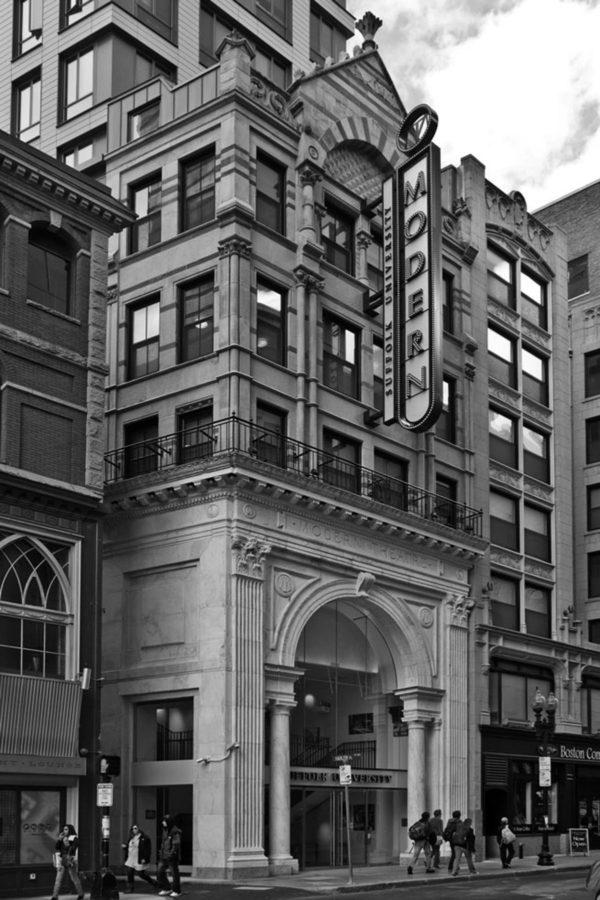Lauren Spencer
Journal Contributor
This fall, Suffolk University was able to celebrate a new success as its Modern Theatre residence hall received an LEED Silver Rating as a credit to its ecologically sound structure and maintenance.
LEED (Leadership in Energy and Environmental Design) works in affiliation with the U.S. Green Building Council to promote improvements made towards more environmentally sustainable facilities.
“Throughout the process of designing and constructing [the Modern Theatre residence building], Suffolk worked with its partners to incorporate sustainable building practices,” said Erica Mattison, Suffolk University’s campus sustainability coordinator.
Located in Boston’s theater district on Washington Street, the Modern Theatre building includes a student residence hall, theater and a gallery.
Mattison said some of the building’s recent improvements include enhanced energy and water efficiency, material reuse and high indoor air quality.
The building features several environmental elements that were considered by LEED when presenting the Silver designation; among them was a restored historic façade of the original Modern Theatre, which was formerly a movie house.
The building also now features a reflective white roof, constructed to lessen the need for air conditioning during the year’s warmer months. Occupancy sensors were added to the building’s dormitory rooms, programmed to turn off lights, as well as the heating and cooling systems when students are not in the rooms.
Another highlight is the building’s urban location which is convenient to public transportation, as well as on-site bicycle storage to facilitate access to alternative transportation.
Water efficiency was another remarkable element considered by the LEED, and was achieved through low-flow plumbing. The building’s energy efficiency resulted in cost savings of 20 percent.
“We worked with our team to ensure recycling for more than 75 percent of all waste generated during demolition and construction,” Mattison said.
Throughout the construction process while making the renovations, more than 81percent of the waste generated in the production was diverted from recycled products.
Mattison added that residents of the building are able to contribute to the building’s sustainability by helping to minimize the environmental impact of the building. They do so by reducing waste and by taking advantage of the convenient recycling bins located on each floor.
While the building’s residents are able to do their part, lots of maintenance is done behind the scenes as well, in order to uphold an environmentally friendly operation. The building’s cleaning company contributes to healthy indoor air quality by engaging in green cleaning practices.
Also highly involved in the Modern Theatre project were Gordon King, the senior director of facilities planning and management, project architect Adrian Lebuffe, and Green Building Consultant Colleen Soden.
As Mattison and the remainder of the committee are excited to have earned such an award, the acknowledgments received by this particular project don’t end there. The developments have earned the building the Paul E. Tsongas Award from Preservation Massachusetts. It will receive the American Institute of Architects New England Design Award on October 15, and the Boston Preservation Alliance will honor the Modern Theatre developments on October 5, with a Preservation Achievement award.













